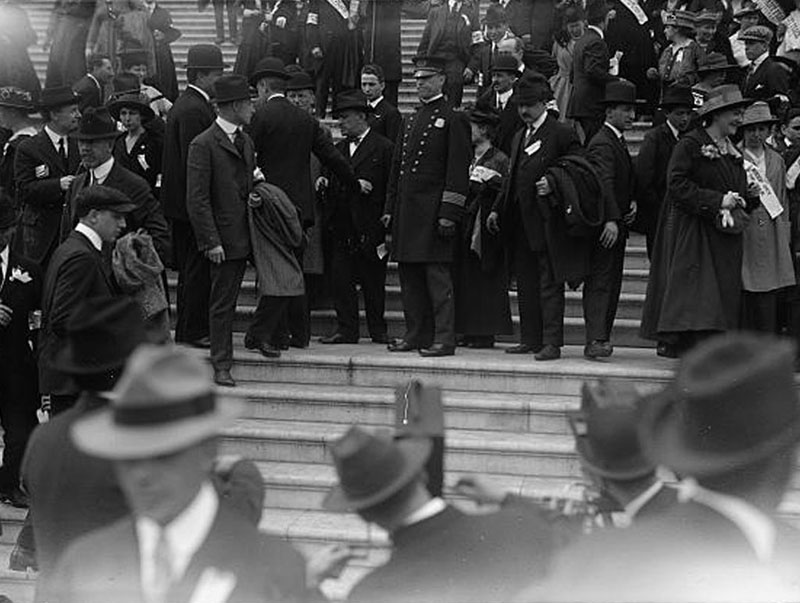Introduction
In his war address, President Wilson (1856–1924) noted that Germany “has filled our unsuspecting communities and even our offices of government with spies and set criminal intrigues everywhere.” Wilson promised to use “a firm hand of stern repression” to deal with disloyalty. Congress debated the terms of the Espionage Act for nine weeks, and ultimately rejected a Wilson-supported proposal for official press censorship. The final law contained provisions to punish spies and saboteurs, but the passages excerpted below anticipated a new problem—resistance to military recruitment. The government’s decision to draft the bulk of the wartime army departed from the nation’s traditional reliance on volunteers. To contain opposition to conscription, the Espionage Act included controversial provisions that criminalized antidraft protests and banned so-called seditious publications from the mail.
—Jennifer D. Keene
U.S. Statutes at Large, volume 40 (1917–1919), 65th Congress, 217–231. Available at https://www.loc.gov/item/llsl-v40/.
TITLE I
. . . SEC. 2. (a) Whoever, with intent or reason to believe that it is to be used to the injury of the United States or to the advantage of a foreign nation, communicates, delivers, or transmits, or attempts to, or aids or induces another to, communicate, deliver, or transmit, to any foreign government, or to any faction or party or military or naval force within a foreign country, whether recognized or unrecognized by the United States, or to any representative, officer, agent, employee, subject, or citizen thereof, either directly or indirectly, any document, writing, code book, signal book, sketch, photograph, photographic negative, blue print, plan, map, model, note, instrument, appliance, or information relating to the national defense, shall be punished by imprisonment for not more than twenty years. Provided, That whoever shall violate the provisions of subsection (a) of this section in time of war shall be punished by death or by imprisonment for not more than thirty years. . . .
SEC. 3. Whoever, when the United States is at war, shall willfully make or convey false reports or false statements with intent to interfere with the operation or success of the military or naval forces of the United States or to promote the success of its enemies and whoever, when the United States is at war, shall willfully cause or attempt to cause insubordination, disloyalty, mutiny, or refusal of duty, in the military or naval forces of the United States, or shall willfully obstruct the recruiting or enlistment service of the United States, to the injury of the service or of the United States, shall be punished by a fine of not more than $10,000 or imprisonment for not more than twenty years, or both.
SEC. 4 If two or more persons conspire to violate the provisions of sections two or three of this title and one or more of such persons does any act to effect the object of the conspiracy, each of the parties to such conspiracy shall be punished as in said sections provided in the case of the doing of the act the accomplishment of which is the object of such conspiracy. . . .
TITLE XII
SEC. 2. Every letter, writing, circular, postal card, picture, print, engraving, photograph, newspaper, pamphlet, book, or other publication, matter, or thing, of any kind, containing any matter advocating or urging treason, insurrection, or forcible resistance to any law of the United States, is hereby declared to be nonmailable. . . .



























































































































































































































